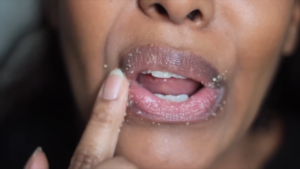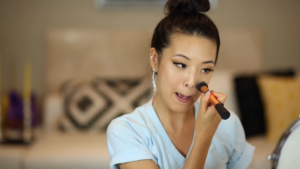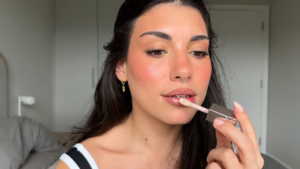Say Goodbye to Acne: Effective Strategies to Fight Excess Oil, Clogged Pores, Bacteria, and Hormones. Acne, a common skin condition, can cause discomfort, embarrassment, and even scars. This occurs when skin pores become blocked by oil, dead skin cells, and bacteria. These clogged pores then become inflamed, producing the bumps, blackheads, and cysts we know as acne. Although acne can affect anyone, it is most common in teenagers and young adults. The causes of acne are complex and can include genetic, hormonal, and environmental factors.
Factors Causing Acne
Excess oil production: The sebaceous glands in the skin produce an oil called sebum. Excessive sebum production can clog pores.
Clogged pores: Dead skin cells and dirt can build up in pores, clogging them and creating a favorable environment for bacteria.
Bacteria: Propionibacterium acnes (P. acnes) bacteria live on the skin and feed on sebum. As P. acnes populations increase, they can cause inflammation and acne.
Hormones: Changes in hormone levels, such as those that occur during puberty, menstruation, or pregnancy, can trigger excess oil production and acne.
Effective Strategies to Fight Acne
Treating acne requires a multifaceted approach that targets multiple causative factors. Here are some effective strategies:
- Proper Skin Care
Wash your face twice a day: Use a gentle cleanser formulated for acne-prone skin. Avoid harsh or drying cleansers.
Exfoliate regularly: Use a gentle facial scrub once or twice a week to remove dead skin cells and dirt that clogs pores.
Use products that contain anti-acne ingredients: Look for products that contain salicylic acid, benzoyl peroxide, or retinoids. These ingredients help kill bacteria, reduce inflammation, and prevent clogged pores.
Avoid products that clog pores: Products containing oil, lanolin, or petrolatum can clog pores and make acne worse.
- Healthy Diet
Limit processed foods and sugar: These foods can trigger inflammation and make acne worse.
Eat lots of fruits and vegetables: Fruits and vegetables are rich in antioxidants and nutrients that can help fight inflammation and improve skin health.
Drink plenty of water: Water helps flush out toxins and keeps the skin hydrated.
- Stress Management
Manage stress: Stress can trigger the production of hormones that can make acne worse. Find healthy ways to manage stress, such as exercise, yoga, or meditation.
Get enough sleep: Getting enough sleep is essential for overall skin health. Aim to get 7-9 hours of sleep every night.
- Medical Treatment
In some cases, medical treatment may be necessary to control acne. Treatment options include:
Antibiotics: Topical or oral antibiotics can help kill P. acnes bacteria.
Retinoids: Retinoids are vitamin A derivatives that help prevent clogged pores and reduce inflammation.
Hormonal contraception: Birth control pills can help regulate hormone levels and reduce acne in women.
Isotretinoin: Isotretinoin is a powerful medication used to treat severe acne. It can cause serious side effects, so it should only be used under a doctor’s supervision.
- Professional Care
Blackhead extraction: Blackhead extraction is a procedure in which blackheads and whiteheads are removed manually. This can help clean pores and reduce inflammation.
Chemical peel: Chemical peels use chemicals to remove the top layer of skin, removing dead skin cells and dirt. This can help improve skin texture and reduce acne.
Laser therapy: Laser therapy uses light to target P. acnes bacteria and reduce inflammation.
Conclusion
Acne is a common skin condition that can cause discomfort and embarrassment. While there is no definitive cure, effective strategies that target various causative factors can help control acne and improve overall skin health. With proper skin care, a healthy diet, stress management, medical treatment when necessary, and professional treatment, you can say goodbye to acne and enjoy clearer, healthier skin. Always consult a board-certified dermatologist to get the right diagnosis and treatment plan for your type of acne. With the right treatment, you can overcome acne and regain your self-confidence.








